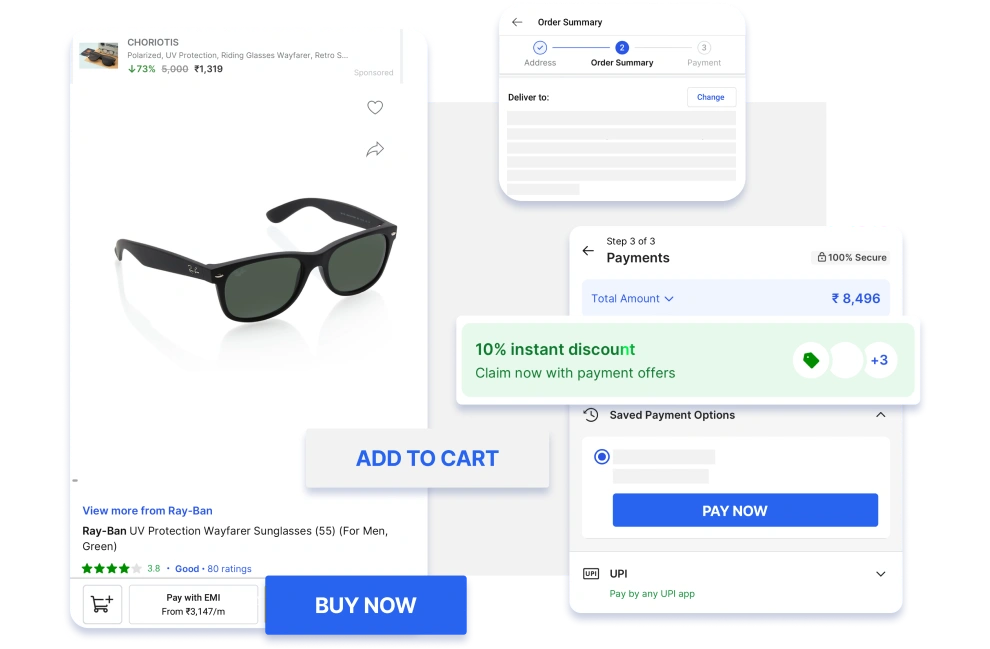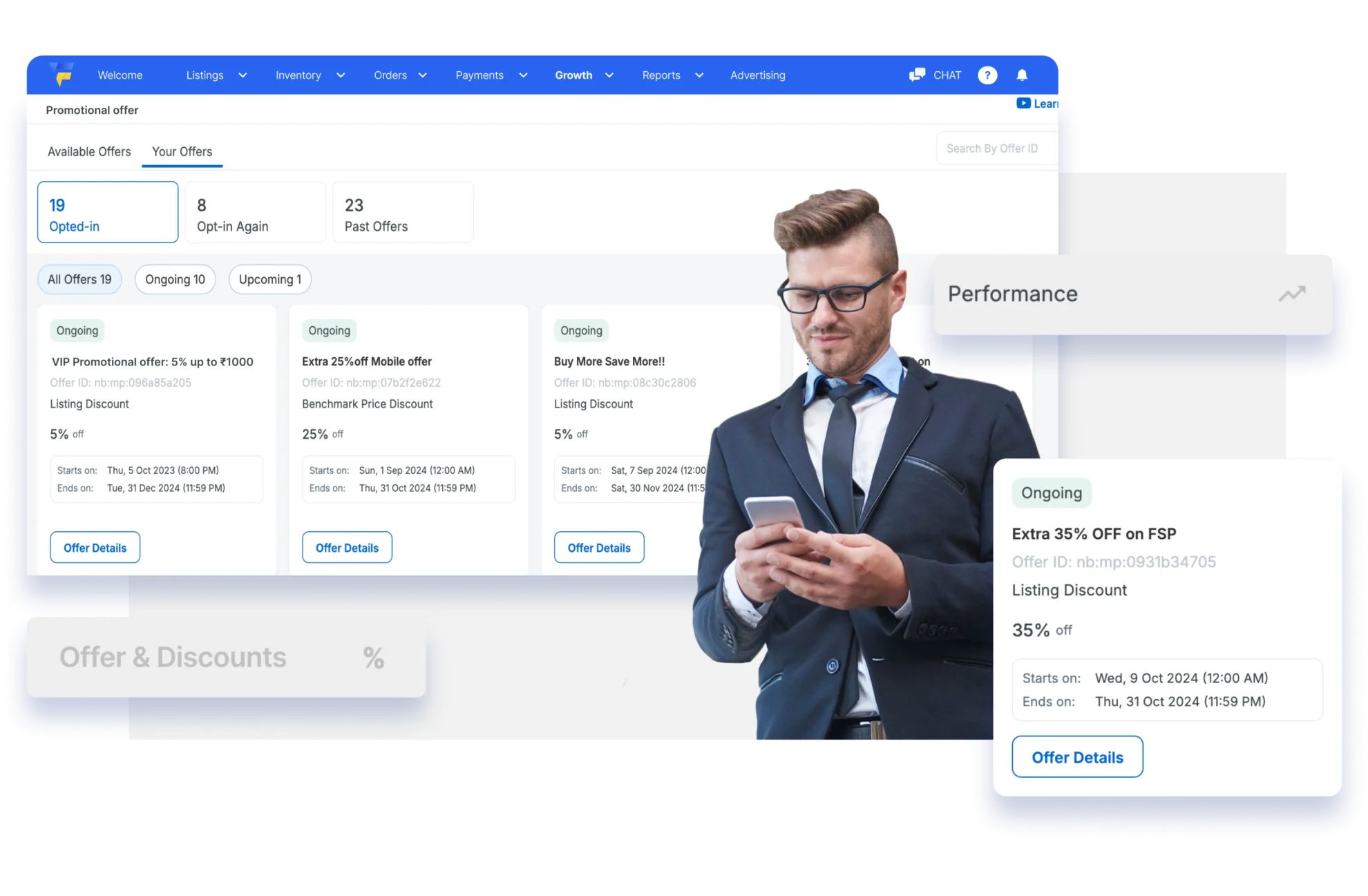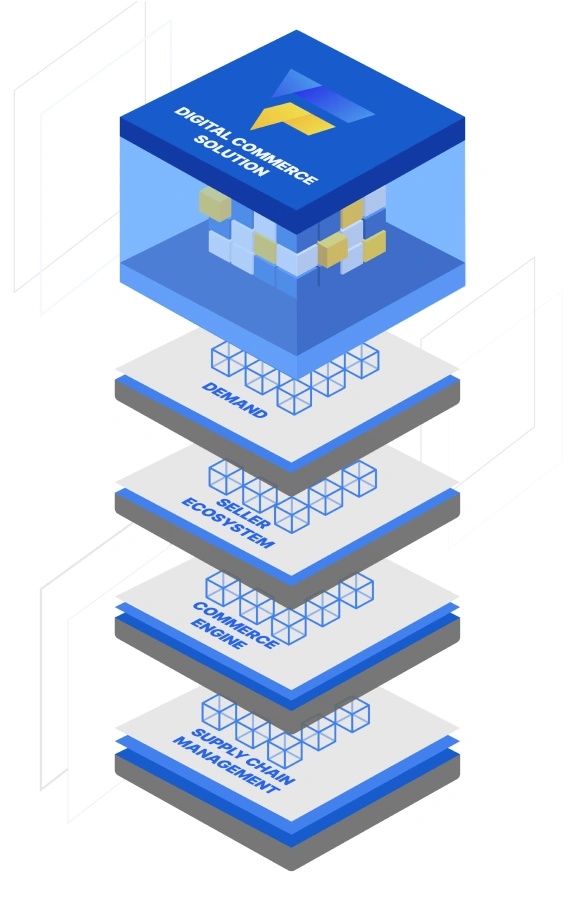Industry ChallEnges
Customers want intuitive shopping experiences
FCC’s versatile Commerce Engine is built to simplify and elevate purchase journeys and improve product discovery
COMMERCE ENGINE
Deliver enhanced and easier shopping with
cutting-edge retail solutions

CART AND CHECKOUT
Simplify and elevate ordering experiences
-
End-to-end omnichannel cart flow orchestration
-
Advanced promise engine for optimal fulfillment
-
Secure 3P payments integration and failure management
-
Data-led promotions engine for personalized checkout

PROMOTION MANAGEMENT SOFTWARE
Easily manage ROI-driven promotions at scale
-
Promotions rules engine and journey management
-
Deep user segmentation and eligibility management
-
Seamless seller promotions opt-in flows

OMNICHANNEL CRM SOFTWARE
Grow revenue with enhanced engagement
-
Advanced segmentation and omnichannel communication
-
Third-party CRM integration and workflow automation
-
Personalized content nudges and communication for improved user interaction

SMART CHAT
Answer customer queries with easy chat options
-
Automated chat workflows and multi-channel integration
-
HITL workflows for seamless bot-to-human transition
-
Built-in chatbot analytics, reporting, and data export

REVIEW MANAGEMENT SOFTWARE
Harness social proof for sales
-
Multi-format rich media reviews and purchase badges
-
Algorithmic content screening and filtering
-
Review solicitation via widgets and CRM communication
Leading Retailers Trust Us

Ease Shopping Hassle & Boost Operational Efficiency
Case Studies
FCC’s Commerce Engine drives measurable impact for retailers
Retailers around the world are delivering better shopping journeys with us

Power easier shopping journeys with FCC’s Commerce Engine
FAQ
A commerce engine is a software platform that powers online retail operations. It manages product catalogs, promotions, customer interactions, and checkout processes, facilitating seamless and efficient e-commerce experiences.
An ecommerce engine enhances online retail by automating catalog management, personalizing customer experiences, optimizing search functionality, and streamlining promotions. This helps boost sales and operational efficiency for retailers.
An ecommerce pricing engine by Flipkart Commerce Cloud analyzes market data and competitor prices to dynamically adjust product prices. It helps retailers maintain competitiveness and maximize profits in real time.
FCC commerce engines benefit various industries including retail, fashion, electronics, groceries, and any business selling products or services online. They are adaptable to diverse e-commerce needs.
Scalability allows an ecommerce engine to handle increasing transaction volumes, larger product catalogs, and higher user traffic without performance issues. This supports business growth during peak sales periods.
An ecommerce engine enhances customer satisfaction by offering intuitive search, personalized recommendations, seamless checkout processes, and streamlined order management, ultimately leading to improved shopping experiences.
A commerce engine focuses on core e-commerce functionalities, while an ecommerce platform often includes additional features like content management and marketing tools for a more comprehensive solution.
Yes, modern commerce engines like the one provided by Flipkart Commerce Cloud are designed to integrate with various third-party tools and systems. This enables businesses to create a customized e-commerce ecosystem tailored to their specific needs.












